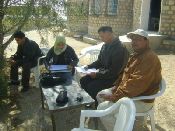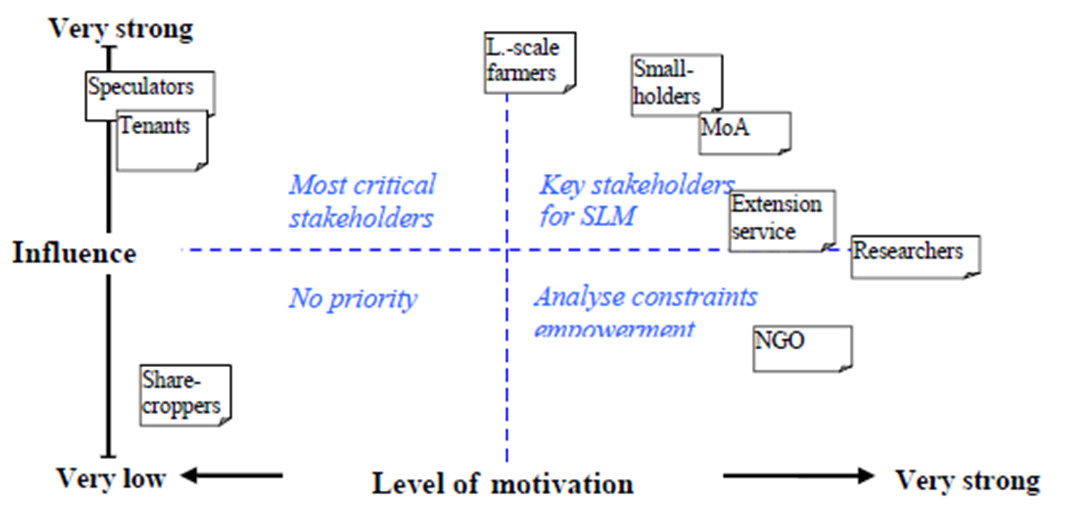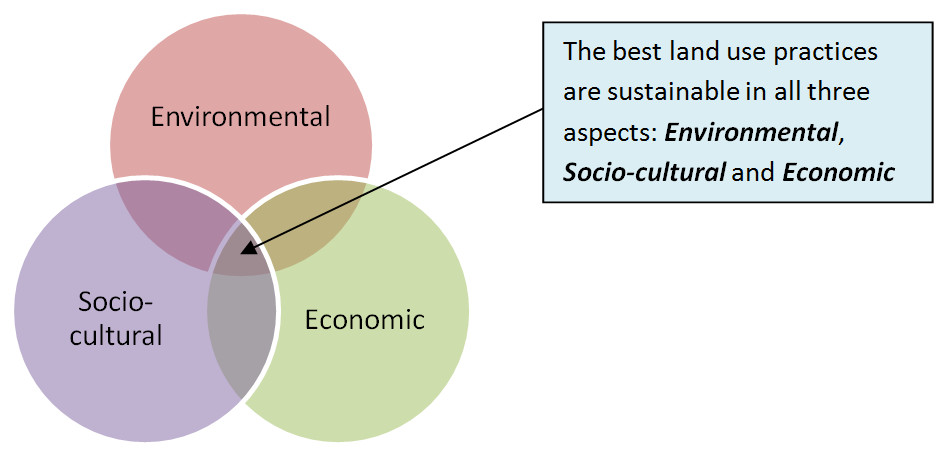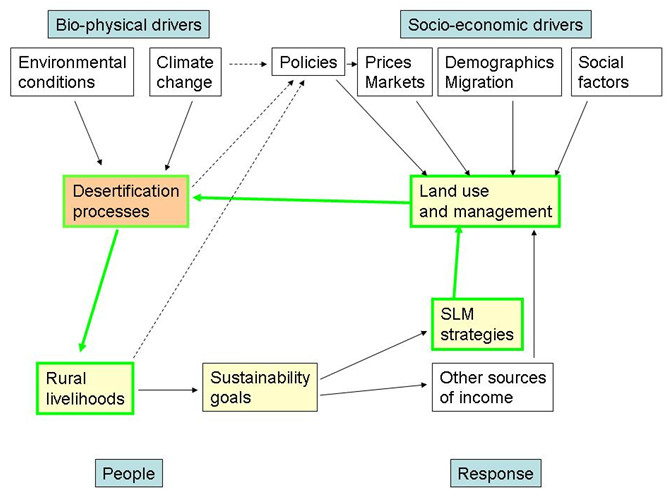|
The involvement of all stakeholders in searching for solutions to land management problems is now widely accepted by scientists, advisors and extension workers. An inventory of relevant stakeholders in the DESIRE study areas has been achieved through a stakeholder mapping exercise, in which the "stakes" of various stakeholders were assessed. Different stakeholders have varying degrees of influence and motivation to achieve sustainable land management.
In DESIRE, stakeholder representatives were invited to a series of workshops, to discuss and choose with researchers the approaches and technologies suitable for sustainable land management in their area. The preparation and results of Workshops 1 and 2 are described under the »Research Theme: Potential prevention & mitigation strategies. A third workshop was later held to review, assess and evaluate the technologies that had been trialled. Reports from Workshop 3 maybe found under the »Research Theme: Regional scale solutions.
Restoration of land degradation is often costly and labour-intensive. The benefits of mitigation measures should therefore outweigh the investments made. Sometimes restoring a severely degraded area is less cost-effective than prevention of (further) degradation in a much less degraded area, but the decision on which measures to take where depends on the objectives of the stakeholders and the intended land use. Taking measures to restore soil fertility in a soil suffering from nutrient depletion is not a sensible idea if the same land is intended for new construction activities. Sustainability goals and objectives for protection and restoration were identified through facilitated discussion and multi-criteria evaluation in focus groups, and are listed for each Study site (see More details below). A more detailed analysis is provided for the study sites in Crete and Botswana. Defining sustainability goals helps to identify the perception of sustainability among various stakeholders and their main concerns, objectives, and interest in achieving sustainability.
Sustainability is often discussed in relation to three dimensions or capitals: social-cultural (people), environmental (planet), and economic (profit). These are often represented as three overlapping circles in a Venn diagram, to show that these dimensions are not mutually exclusive and can be mutually reinforcing.
The conceptual framework for the DESIRE Project includes a loop featuring sustainability goals. The goals must conserve rural livelihoods to keep people working on the land, provide them with an economic income, and also conserve the basic environmental properties of soil and water. If these things are not balanced, there can be adverse effects, such as increased land degradation.
|
|||||

Acknowledgement
The DESIRE project was
|
DESIRE brought together the expertise of
26 international research institutes
and non-governmental organisations.
This website does not necessarily
represent the opinion of the
European Commission. The European
Commission is not responsible for
any use that might be made of the
information contained herein. 



